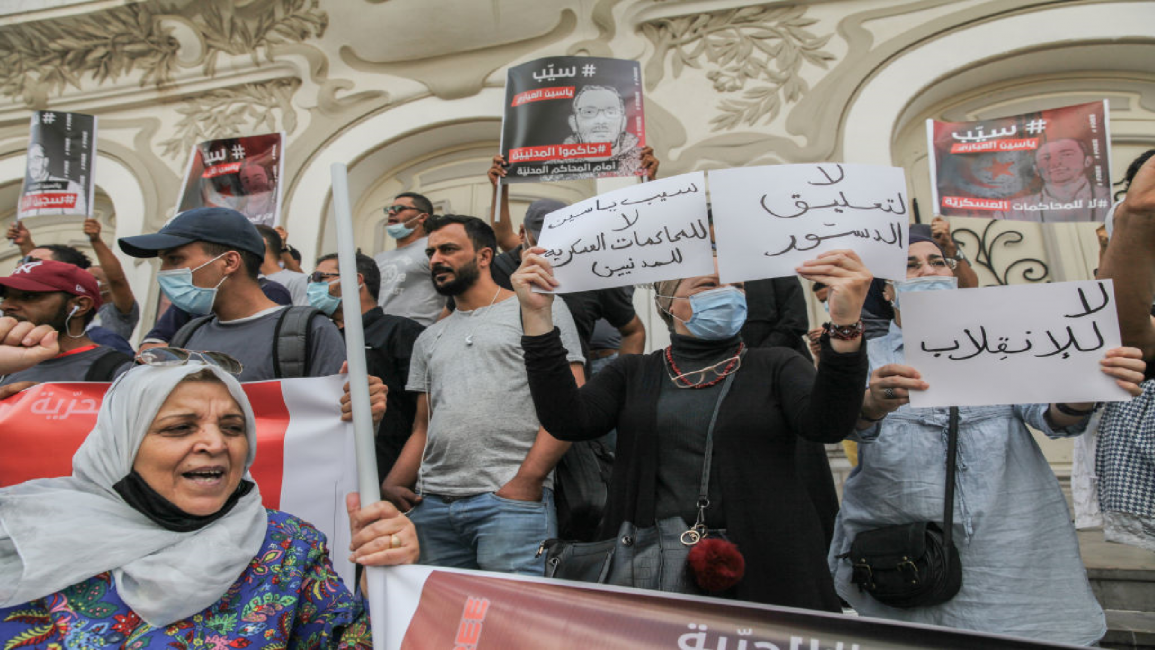Tunisians protest in capital against government crackdown
Tunisian activists took to the streets on Saturday denouncing the crackdown on politicians, journalists and other civilians that began in late July when President Kais Saied seized governing powers.
Using the slogan “Citizens against the coup,” protesters gathered outside the capital’s municipal theatre in demonstration over military trials that have taken place over the past weeks, as they demanded a return to democracy and an end to what they called tyranny.
The protesters said their message was to oppose arbitrary measures targeting citizens’ rights and freedoms, such as travel bans and quarantines lacking judicial decisions, or placing representatives and other political figures under house arrest, as well as recent attacks on protesters.
They also called for demonstrations to continue into the city’s central Habib Bourguiba Avenue and in other provinces around Tunisia.
Many however – even some opponents of Saied – said the protests were not a good idea, warning against provoking and engaging in confrontations with security forces amidst the state of emergency in the country.
Others said the demonstrations would give authorities an excuse to suppress those participating.
Supporters of Saied denounced the calls to protest, warning that the protest movement would threaten civil peace.
Tunisian security forces detained a member of parliament on Friday, amid growing concern for rights in the North African nation.
Rights groups have pushed the release of another parliament member, Yassine Ayari, and have criticised the use of military courts to try civilians.
On July 25, Saied dismissed the prime minister and suspended parliament, in a move his foes, namely the Islamist Ennahda party, call a coup.
Saied said his decision was constitutional and necessary to protect Tunisia against attempts that tried to destroy the nation and its institutions.



